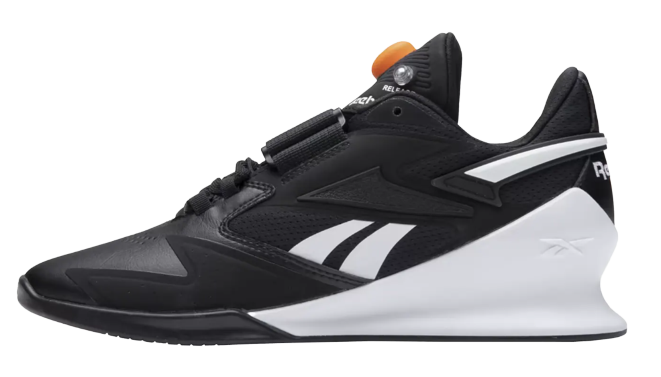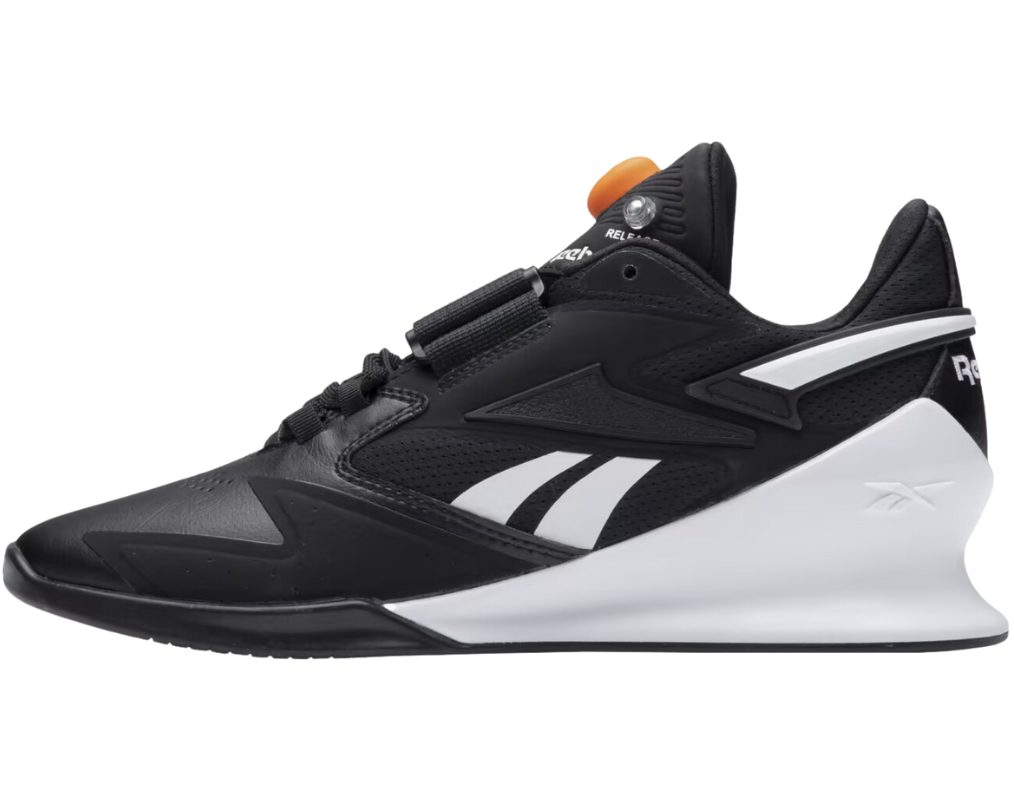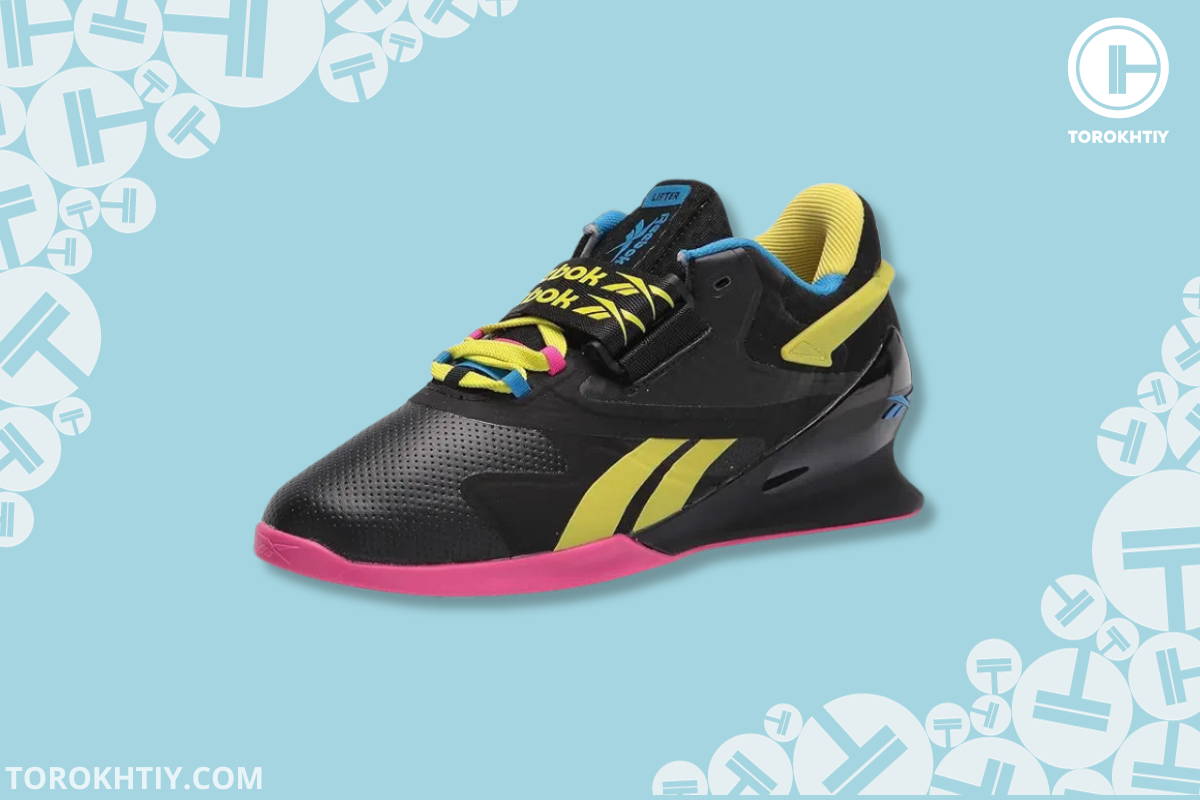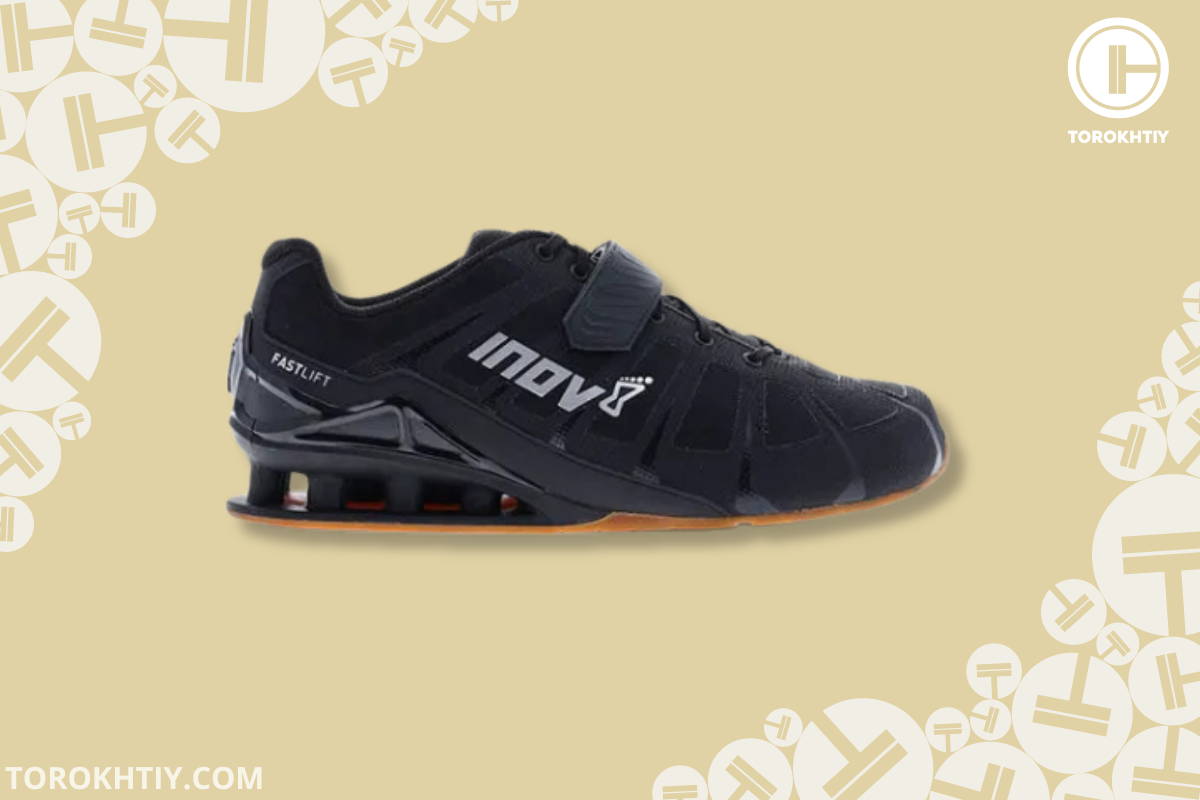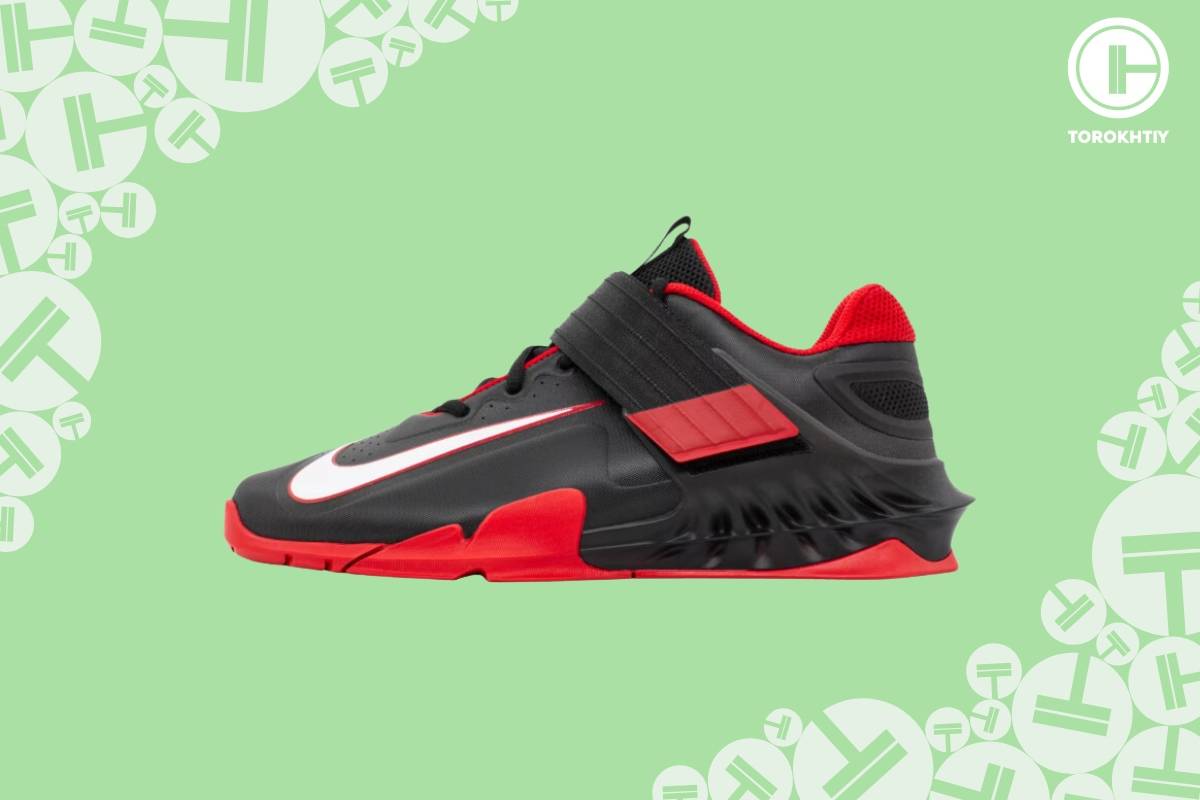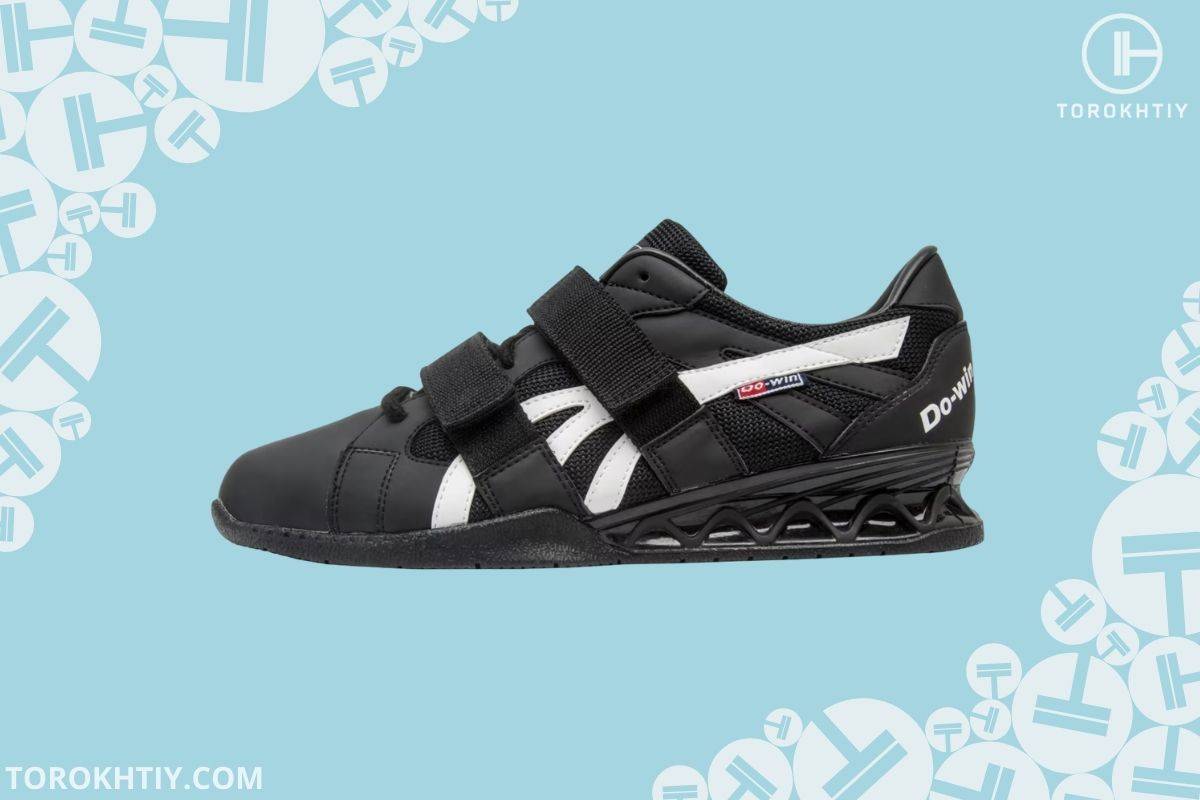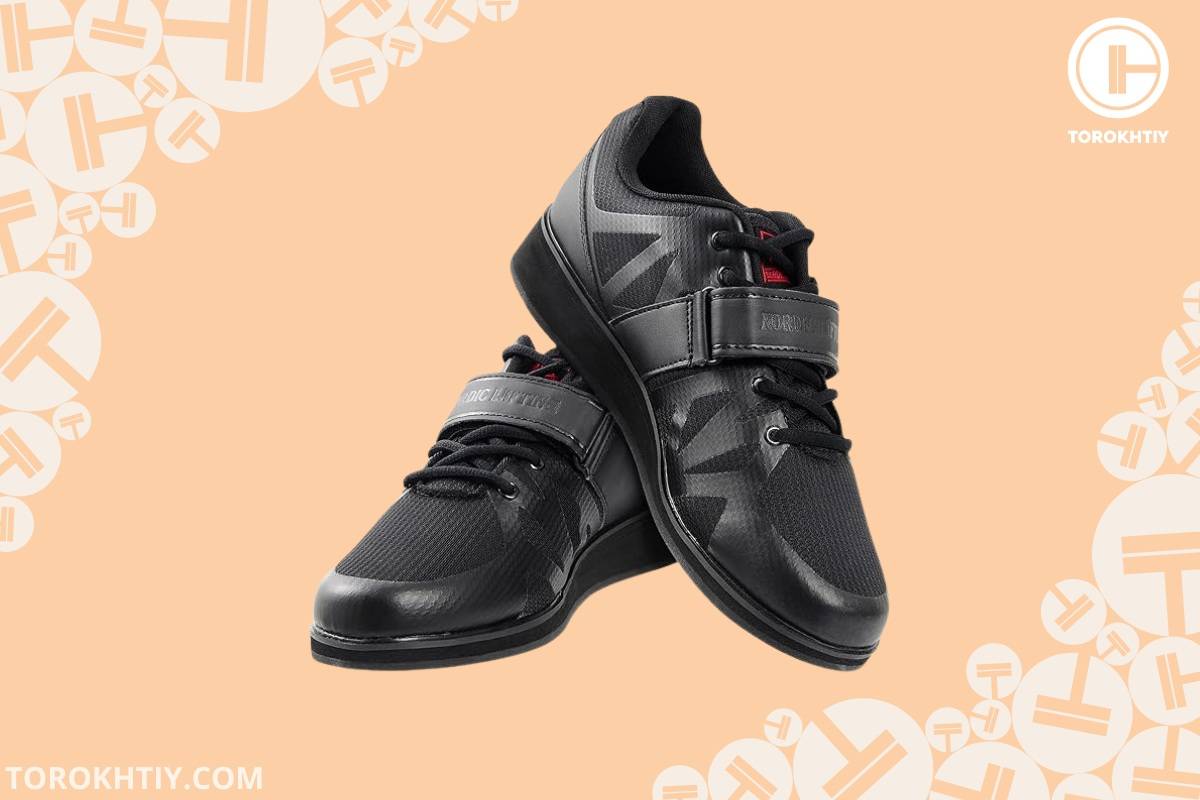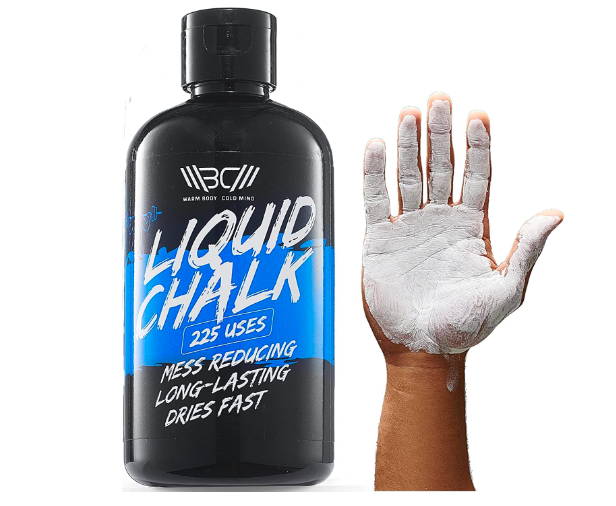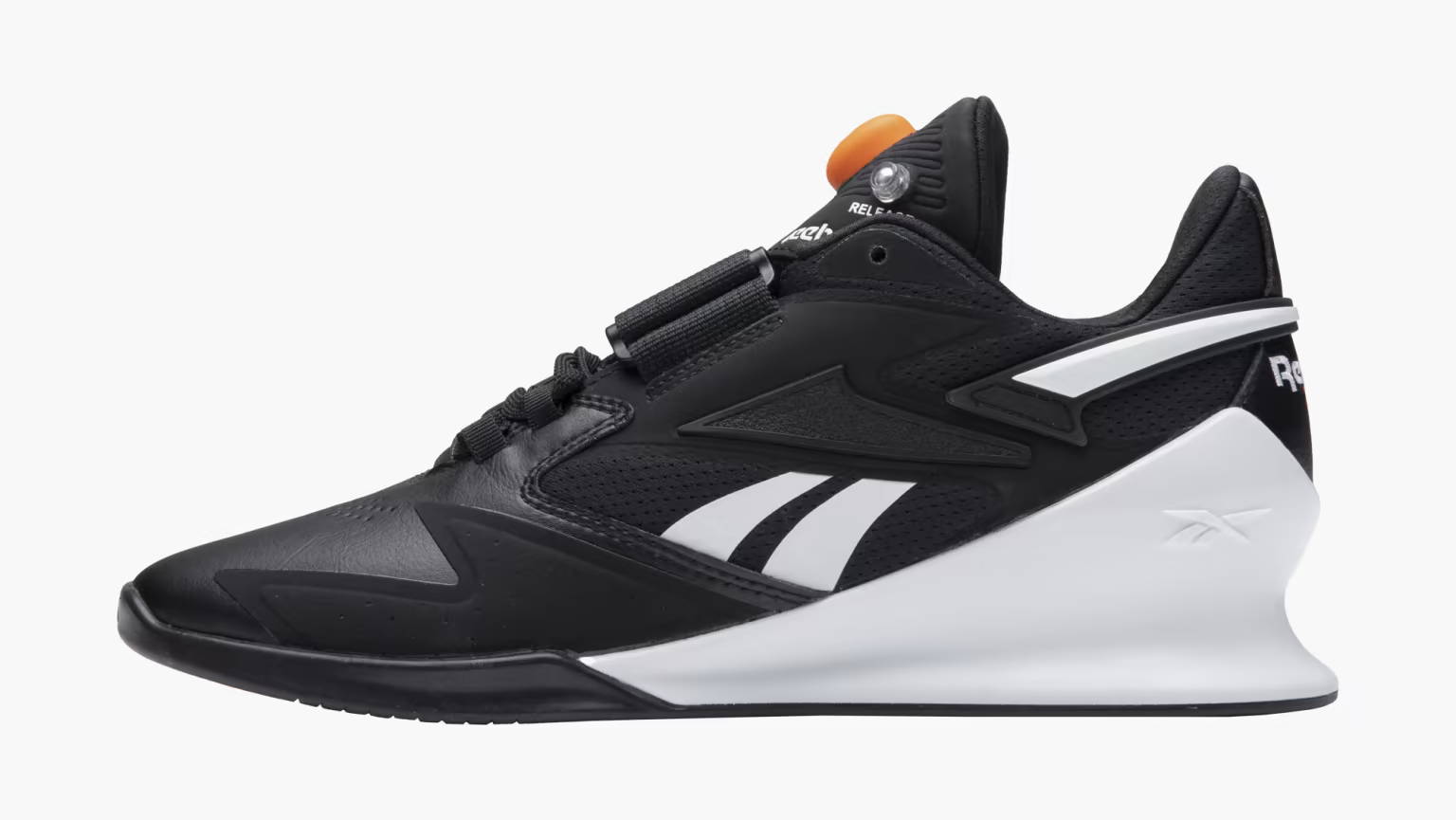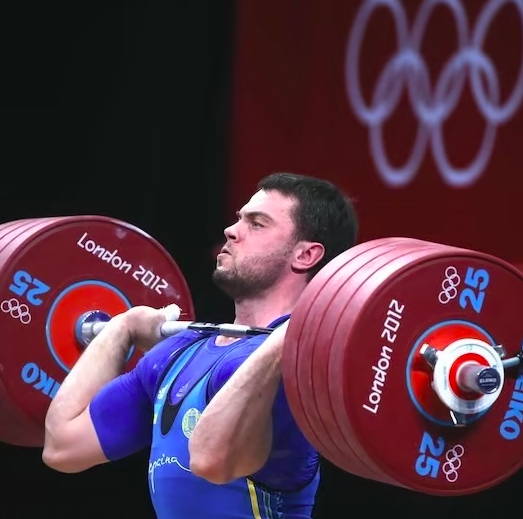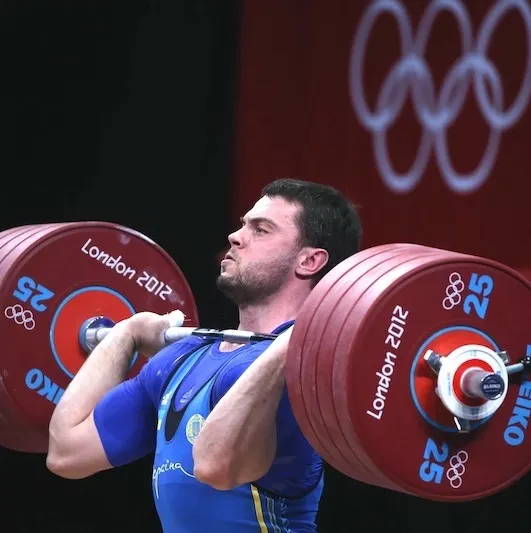Author: Oleksiy Torokhtiy (Olympian with 21 years of Oly Lifting experience)
Reviewed by: Ihor Shymechko (26 years of Oly Lifting & Training experience)
Perhaps, every athlete dreams of a pair of perfect training shoes. It is the basic and the most game-changing gear for any sport activity. Without it, the whole workout can turn into a disaster.
When it comes to the best weightlifting shoes for wide feet, a lot of athletes can’t find them at all. The reason is that most brands on the market overlook body peculiarities, sending many athletes through a hard time.
In this article, I will give you a hand and walk you through five wide lifting shoes that will comfort both your feet and soul.
Perhaps, every athlete dreams of a pair of perfect training shoes. It is the basic and the most game-changing gear for any sport activity. Without it, the whole workout can turn into a disaster.
In a hurry?
In a hurry?
In a hurry and can’t keep reading? How about you check out the Reebok Men’s Legacy Lifter lII.
Starting our list of the best weightlifting shoes for wide feet is Reebok Men’s Legacy Lifter II. They offer first-class quality that will serve you year after year. While being rather pricy, they are still a great investment in your training.
Perhaps, every athlete dreams of a pair of perfect training shoes. It is the basic and the most game-changing gear for any sport activity. Without it, the whole workout can turn into a disaster.
Our team of certified experts, coaches, and pro athletes has rigorously tested 10 pairs of weightlifting shoes for wide feet and only 5 of them met our criteria to be listed in this review. The shoes have been evaluated on 5 key points, with our team spending over 40 hours testing them. We’ve also carefully analyzed hundreds of online user reviews. We update this list all the time, so share your thoughts, tips, and ask any questions you have in the comment section below!
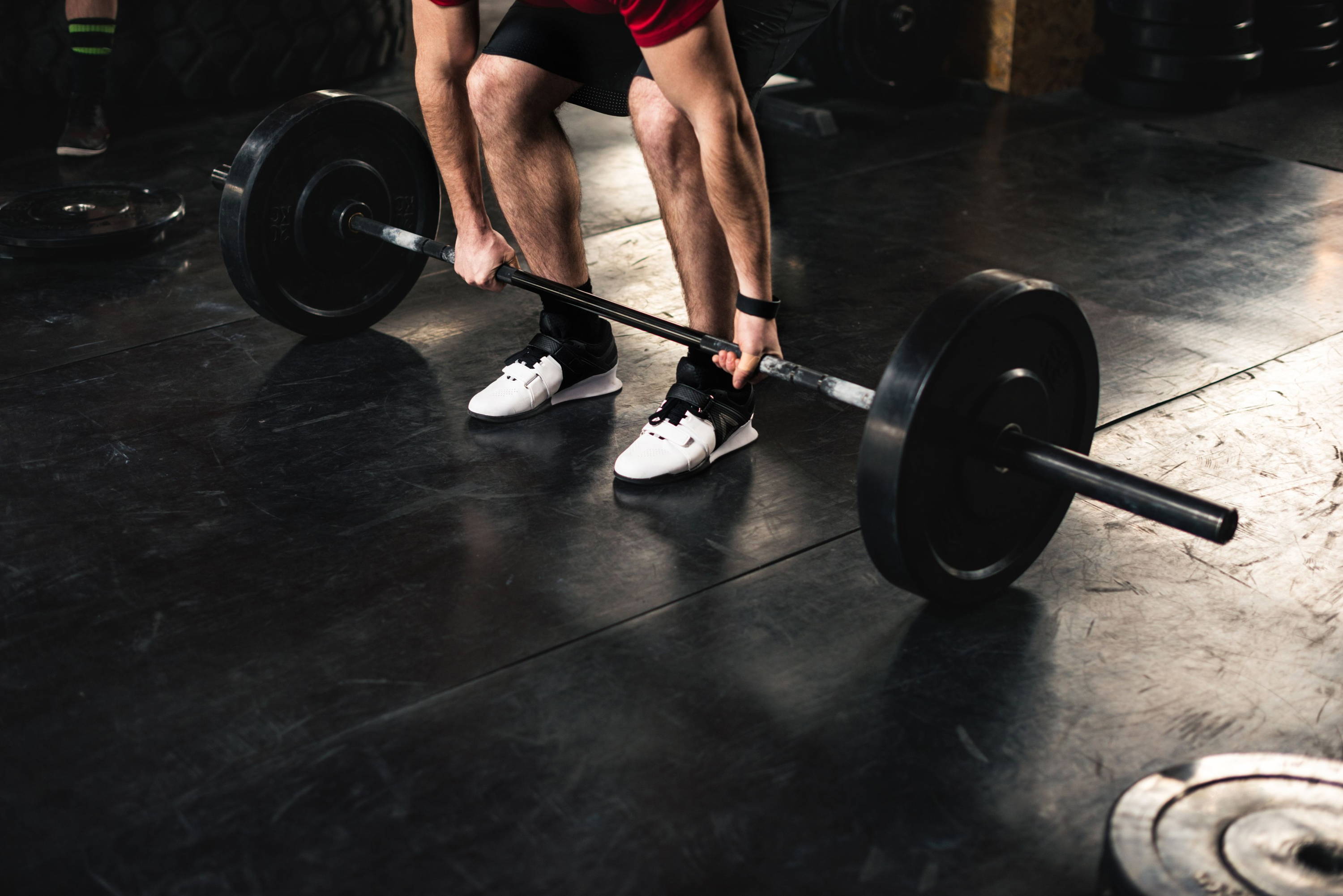
I had five wide squat shoes on my plate and have already chosen the winner. In order to draw the fullest picture of all the products, I gave them scores for the main qualities: design, comfort, material and stitching, stability, and price-quality ratio. Find a brief summary in the table below and jump into all the details!
Top 5 Best Weightlifting Shoes for Wide Feet Reviewed
1. Reebok Men’s Legacy Lifter II – Best Overall
UPDATE! Here's a new model - Reebok Legacy Lifter III that can become a true discovery for those who are fans of the Legacy Lifter model, or their Lifters II are already out.
Despite the model has lots in common with the Legacy Lifter II, it has a novelty - the pump technology which can be useful for enlarging the volume of the tongue. This feature can benefit athletes with narrow feet by bringing better support and security, so the shoes hug the feet wholly.
Reebok Legacy II wins the battle and becomes the best squat shoes for wide feet. They offer first-class quality that will serve you year after year. While being rather pricy, they are still a great investment in your training.
- Heel lift height: 0.86”
- Sole material: rubber
- Upper material: textile
- Sizing: 9.6” - 13”
- Weight: ~23 oz.
First of all, I want to mention the design. It is frankly elaborate with plenty of details that are aimed to make you as confident and productive as possible. If you have wide feet, they might really comfort you, compared to most weightlifting shoes. The toe box provides quite a lot of space which can be also regulated with the strap and laces anytime easily. Moreover, they are not too tight while putting on as well.
The overall construction is a real success, too. The mesh creates a snug environment for the entire workout so that you don’t want to take the shoes off afterwards. Also, there is a rubber pad at the back of your heels that keeps them firmly in place while doing the most dynamic exercises.

Photo by @lostinlacesllc
The stitching quality needs no comments. As it is an advanced option for experienced weightlifters, the shoe is meant to endure the heaviest workouts and last nearly forever. Obviously, the price, which is, by the way, the main downside, implies the highest quality.
As for the heel rise, it is slightly bigger than you are likely to come across but still not too much. If you struggle with low ankle mobility, you may find such a height just a perfect solution.
Positives:
Snug fit
Sturdy and durable
High heel to help with ankle mobility issues
Solid sole and ‘sticky’ grip
Keep the heel fixed
Could be better:
High price
2. Inov-8 Men’s Fastlift 360 – Runner-Up
- Heel lift height: 0.65”
- Sole material: rubber
- Upper material: synthetic
- Sizing: 7.5” - 13”
- Weight: ~12.7 oz.
Inov-8 Fastlift becomes the runner-up on my list. It is a more versatile option for athletes engaged in different sports. Still, the price for such a product is also closer to a higher end.
First, these wide weightlifting shoes will work well for lifters who don't stick to a limited number of exercises but are always eager to try something new. They usually want high stability in their feet while staying mobile and flexible enough to perform all kinds of movements.
Inov-8 provides a strong rubber sole for a confident grip but don’t limit your feet any higher. The mesh allows you to do various exercises without any rigidness. Also, the sole at the toe area is thinner than most weightlifting shoes have. It contributes to high flexibility as well.
Moreover, such construction makes the shoes really snug and soft on the feet. The lightweight material allows your skin to breathe and feel comfortable throughout the whole session. By the way, the weight of Inov-8 is also lower than average.
As for the drawbacks, the price is not that affordable. Still, it is a good investment if you need a versatile and durable shoe that will come in handy for any exercise.
All in all, Inov-8 ends up as a great, yet, expensive option for athletes who need a universal pair for variable workouts.
Positives:
Versatile and mobile for different sports
Solid heel
Highly breathable lightweight material
Fancy minimalistic look
Could be better:
Relatively high price
Don’t give the highest stability
- Heel lift height: 0.6”
- Sole material: TPU
- Upper material: mesh
- Sizing: 5” - 15”
- Weight: ~15.4 oz.
Savaleos is a budget option of Nike weightlifting shoes which is additionally adapted for wide feet. If you want just a middle ground in terms of price and quality, check these out.
First, these Nikes are more versatile than their other products. Because the heel rise is relatively low, you can use them for plenty of exercises effectively. Apart from that, they become fairly flexible after breaking in for a while.
Another benefit is the price. Compared to most Nike weightlifting shoes, these are pretty affordable which makes them a good starter option.
As for the drawbacks, the overall construction is rather heavy in terms of materials. It may get hot in summer. If breathability is your main priority, have a look at more lightweight mesh options.
Another issue is the strap. Frankly, it is rather short and poorly built. If you have a very wide foot, you may get confused with a velcro length. On top of that, the quality of the strap material is not the best which influences durability a lot.
All in all, if you need a pair of standard reliable lifting shoes, check out Nike Savaleos.
Positives:
Suitable for different sports
Strong grip on the floor
Great price
Wide construction
Could be better:
The strap is not very durable
May be narrow for very wide feet
- Heel lift height: 0.75”
- Sole material: plastic, rubber
- Upper material: synthetic leather, mesh
- Sizing: 4.5” - 14”
- Weight: ~17 oz.
Do-Win is another great option for wide feet, especially as a starter option that doesn’t put too much pressure on your budget.
First of all, If you have really wide feet, you may find this option the most comfortable and well-shaped for your needs. The profile is noticeably wider than most weightlifting shoes offer on the market.
Nevertheless, these shoes have a really reliable closure system with two velcro straps at the top. If you like good compression, this option may meet your expectations perfectly well without restricting your feet.
On top of that, the price makes it a great option for beginners and amateurs who don’t want to splash out on a pair of too elaborate weightlifting shoes. Do-Win are an example of standard workable shoes for any session.
As for the drawbacks, the upper material is synthetic leather which may be too strong for some athletes. It can get hot in summer or during an intensive set. Probably, you won’t feel too much discomfort, still the breathability will go down significantly.
All in all, Do-Win is a great option for wide-footed beginners or those on a tight budget.
Positives:
Really wide construction
Wide size range
Great value for money
Secure closure system
Could be better:
Not very breathable
Poor insoles
- Heel lift height: 1.4”
- Sole material: foam, rubber
- Upper material: mesh
- Sizing: 7” - 12”
- Weight: ~14”
Nordic Lifting offers another decent option for wide feet but finishes in the last place on my list. It is an affordable shoe for amateurs, though has a couple of drawbacks as well.
The biggest peculiarity is the heel height – 1.4” – which can be rarely seen among other weightlifting shoes. On the one hand, it might help athletes with poor ankle mobility to squat deep and maintain the proper mechanics. On the other hand, it might shift the gravity center to the toes, which is a pretty common mistake in the gym.
Moreover, the heel material is a foam that can be pressed after some time. If you are not all into extreme lifting, you may find it not a big deal. Yet, if you are closer to the advanced level, such a pair will not serve you long.
Obviously, the stitching quality is not the same as you can see in premium options. There are some sticking threads and failed seams on the straps.
Nevertheless, Nordic Lifting shoes can be a good choice for beginners or amateurs with wide feet who want a little bit more stability in their strength training for a reasonable price.
Positives:
Affordable price
Good for wide feet
Help with ankle mobility issues
Could be better:
Stitching faults
Foam heel
Subscribe!
The latest reviews of must-have home gym training equipment, apparel, and supplements that will enhance your performance and bring you new results.
How Have I Chosen the Best Weightlifting Shoes for Wide Feet?
Now, I will walk you through all the criteria that I used to compare the weightlifting shoes on my list.
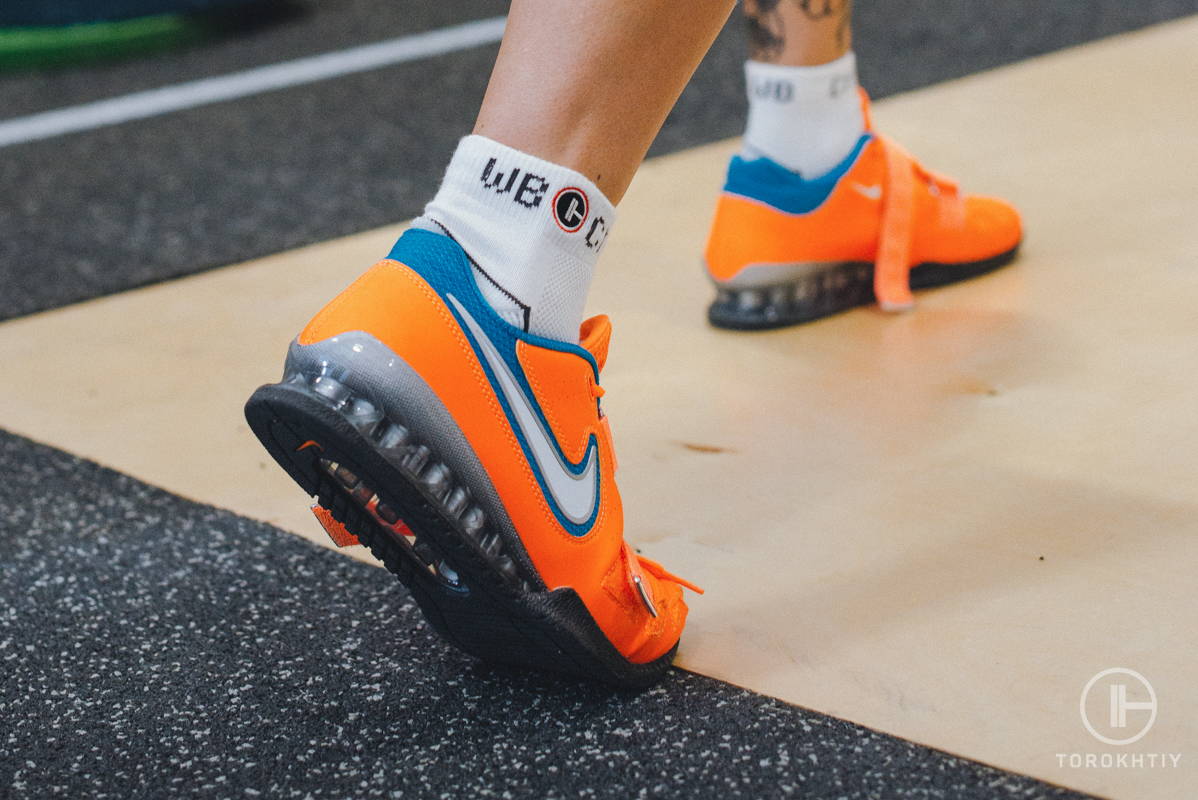
1. Design
At the top of my rating, you can see options with the most elaborate design that got 10 points. I paid attention to everything: overall construction, extra properties, workable details, etc. As you go down the list, you can find the most standard designs that meet the most basic requirements.
2. Comfort
Basically, all options are fairly comfortable on the feet. Soft mesh and engulfing shape make them really snug. Still, I put a lower score for Nike as well as Do-Win – they are not breathable enough and may get hot.
3. Material and Stitching
The Reebok and Inov-8 weightlifting shoes are perfect in terms of material and stitching quality. They will handle numerous sessions without falling apart. Still, I noticed some flaws on the Nordic Lifting shoes so they get the lowest score.
4. Stability
Stability mainly depends on the sole material. I don’t recommend a foam heel for advanced training – it is likely to press down after some heavy sets. The Nordic Lifting shoes got 9.5 points for this drawback. Still, if you are only getting to know weightlifting, you can have a look at this option as well.
5. Price-Quality
If you have some money aside to invest in your training, you better have a look at the first two options – Reebok and Inov-8. They are pricy, but the quality will pay back soon.
Looking for a middle ground, check out Nikes. And if you are on a tight budget and want a workable shoe, check out the Do-Win option.
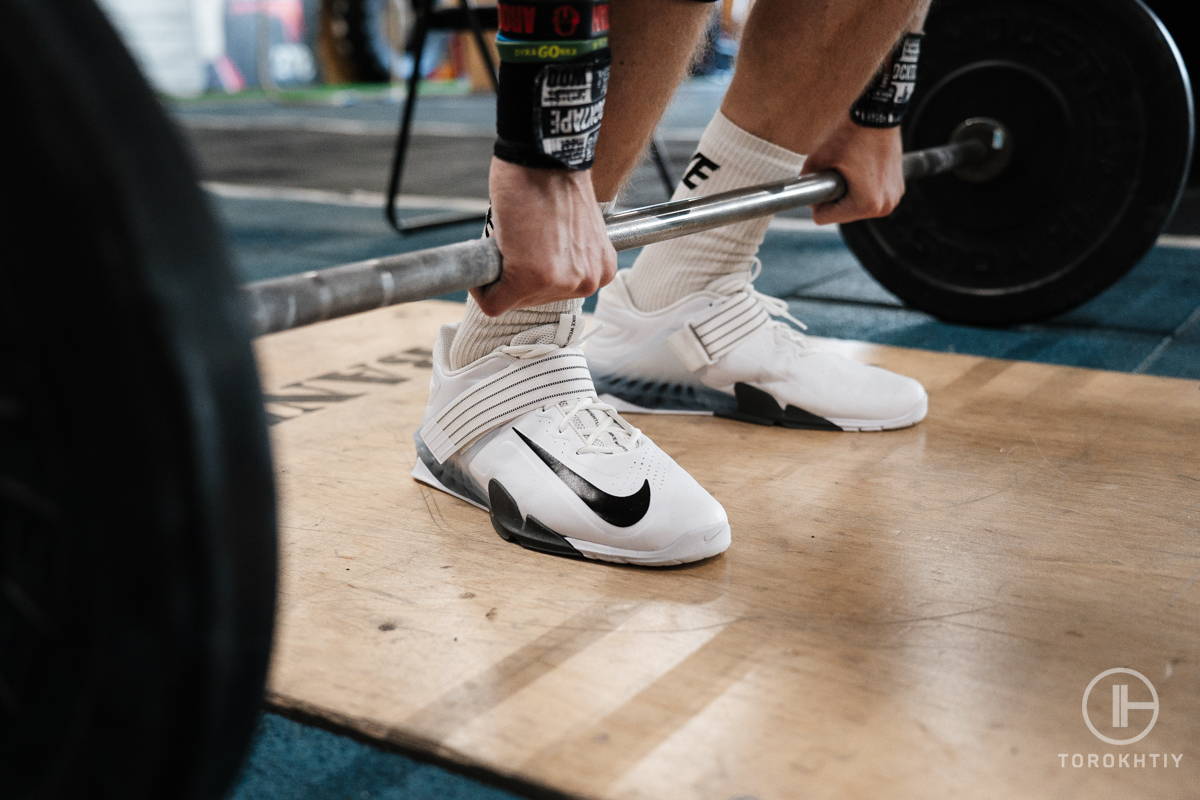
Do You Really Have Wide Feet?
If you often struggle to choose shoes with the proper fit, you probably have wide feet. Basically, there is no definite indicator to give a verdict right away. You can just measure the widest part of your feet (usually, the base of your toes) and then compare it to a sizing chart that some manufacturers provide for the width. If you see that your toe area is rather big, you may need a roomy shoe for it.
How to Choose Weightlifting Shoes for Wide Feet?
Choosing wide toe box weightlifting shoes may turn out to be quite a tough time. Most brands target standard sizes and don’t pay much attention to foot peculiarities. Still, I’m here to help your feet out! Read my brief guide on how to choose your best pair.
1. Toe Box
Toe box is the basic feature to consider while choosing weightlifting shoes for wide feet. You may think that you can adjust the width by regulating laces and straps but the sole can’t be changed anyway. Thus, always choose a shoe that is wide in terms of its overall construction.
2. Material and Construction
If you have wide feet, you better choose weightlifting shoes made of sturdy material. It will make them more resistant and durable in the long run.
Tips From the Champ

Olympic Weightlifting Champion
3. Closure System
Closure system helps to regulate the fixation and pressure on the feet. If you have wide feet, choose some standard closure systems such as laces and velcro straps that can be easily adjusted. By choosing a simple option, you make your life easier while putting a shoe on.
Usually, one velcro strap at the top part will give you more room in the toe area. Still, if you like to feel a shoe fits you tightly, go for two straps but be ready to spend some more time getting everything ready.
Flat vs Heeled Shoes
If you are into weight training, I always recommend buying a pair of weightlifting shoes. Generally, they are adapted for this particular purpose, giving you more stability and comfort in the feet area. The main difference is the raised heel that supports the proper mechanics and helps with ankle mobility issues, especially during squats and Olympic lifts.
FAQ
Are Nike Romaleos 4 good for wide feet?
Nike Romaleos 4 are not the best choice for wide feet. Generally, most Nike shoes have a tight fit. You can try sizing up if your feet are not extremely wide, but I recommend having a look at Nike Savaleos or other options, designed specifically for wide feet.
Should I size up if I have wide feet?
You can try sizing up if your feet are not too wide. Yet, I recommend choosing weightlifting shoes, designed specifically for wide feet as their construction differs to fit better. They will be more comfortable and serve you for a longer time.
Conclusion
All in all, if you are an experienced weightlifter ready to make a weighty investment in your training routine, go for the Reebok Legacy Lifter II and their new model Reebok Legacy Lifter III make your feet comfortable for ages. If you need a more versatile option for various exercises, have a look at the runner-up – Inov-8.
Searching for a middle ground, stop by the Nike Savaleos. And check out the rest of the options if you are an amateur looking for a starter option.
What weightlifting shoes do you choose for wide feet? Share your experience in the comment section!
References:
- Effects of Footwear on Performance in a Barbell Backsquat // International Journal of Exercise Science: https://digitalcommons.wku.edu/ijesab/vol2/iss8/61/
- Heel-Raised Foot Posture and Weightlifting Shoes Do Not Affect Trunk and LowerExtremity Biomechanics during a Barbell Back Squat // Digital Scholarship:
https://digitalscholarship.unlv.edu/thesesdissertations/3543/ - All Photos made by Torokhtiy Media Team.
Why Trust Us?
- Author
- Reviewer
Experience: 21 years
Best Results: Snatch – 200 kg,
C&J - 240 kg
My name is Oleksiy Torokhtiy. I am a professional athlete with 20 years of experience in Olympic weightlifting. I have won multiple European, and World titles and have taken part in two Olympic Games (Beijing 2008, London 2012).
After finishing my career, I have committed myself to coach, and as of 2022, I’ve hosted 200+ weightlifting seminars all over the globe. I’m the founder of an international sportswear and accessories brand, Warm Body Cold Mind (my motto), author, and creator of a series of training programs and eBooks.
If you have any questions/suggestions/any other inquiry, you can reach out to us via email - reviews@torokhtiy.com
Experience: 26 years
Best Results: Snatch - 208 kg,
C&J - 240 kg
My name is Ihor and I have been a professional weightlifter since 1996. With over 20 years of competition experience, my resume includes European Champion in 2009 and the silver medalist at 2011's Senior World Championships – 105kg division.
I competed at the 2008, 2012 and 2016 Summer Olympics.
After hanging up my own competitive lifting shoes, I decided to share my huge background as a coach. I am currently coaching multiple athletes who are competing at national and international competitions.
If you have any questions/suggestions/any other inquiry, you can reach out to us via email - reviews@torokhtiy.com
This article was written by our qualified author and proofread by an expert with proven experience. When writing the article we've used our expertise and data from authoritative, scientific, and evidence-based sources. The list of references is provided at the end of the article.
Our team of authors and experts includes professional athletes (Olympians, winners of European and World titles), PhDs in Sports Science, certified coaches, sports nutritionists, CSCSs, physiotherapists, and others. Read more about the team here, and more about how we test here.

